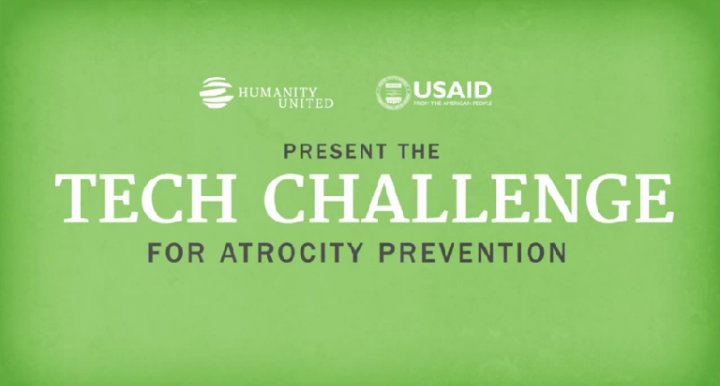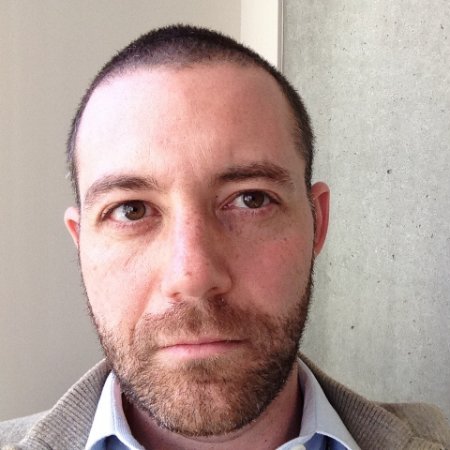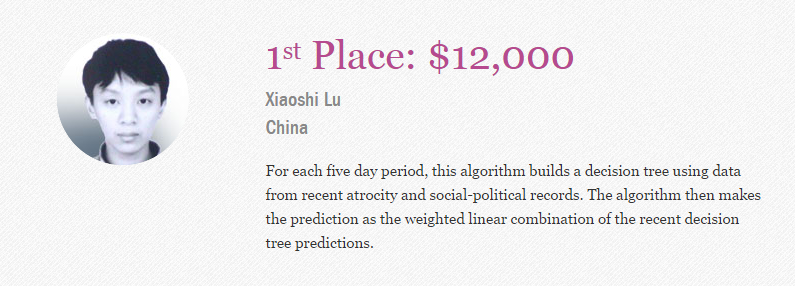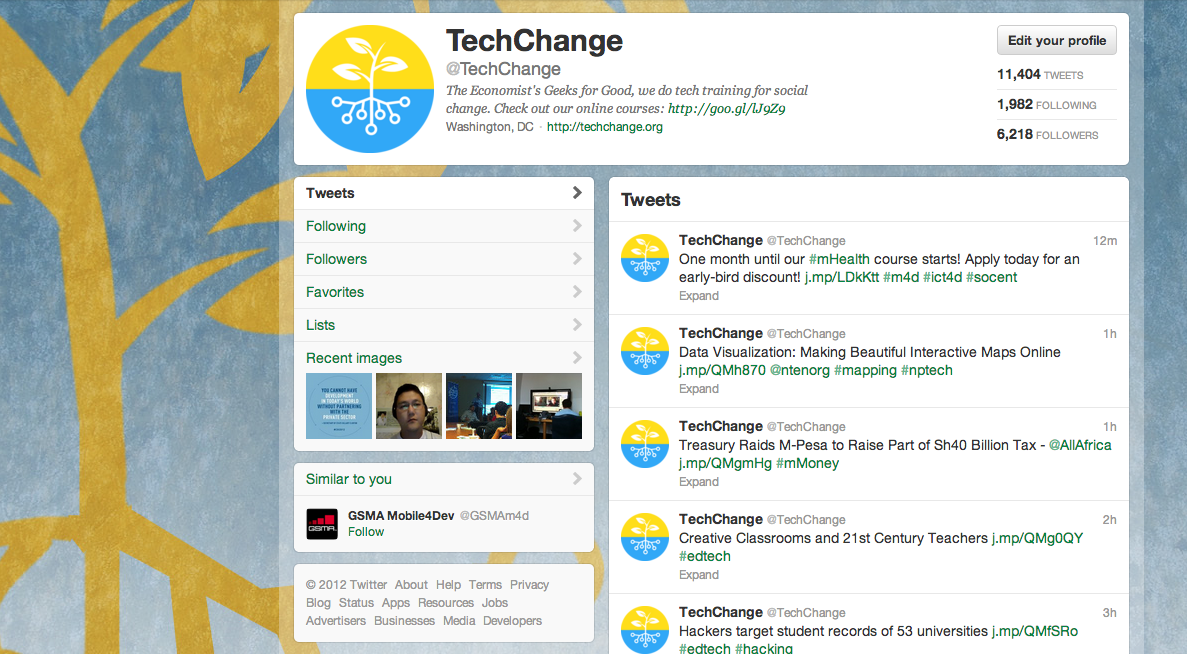We’re very excited to welcome Michael Kleinman as one of our expert guest speakers in TC109: Tech for Conflict Management & Peacebuilding online course which starts this Monday, October 6. Michael Bear Kleinman is a Director on the Investments Team at Humanity United, where he oversees the grant portfolio on technology and human rights. Previously, he worked for NGOs in Afghanistan, east and central Africa, and Iraq.
During his session in TC109, Michael will focus primarily on the recent Tech Challenge for Atrocity Prevention competition. In this 2013 competition, Humanity United and USAID partnered together to reward prize money of up to $12,000 to innovators who offered tech solutions to prevent atrocities such as genocide and mass rape.
The five sub-challenges were:
- Enablers: Develop technologies to better identify, spotlight, and deter intentional or unintentional third-party enablers of atrocities (e.g. non-state actors such as multinational corporations, financial institutions or those who provide logistical support)
- Capture: Develop technologies that can enable the documentation of relevant evidence that may be used to deter or hold perpetrators accountable, while minimizing the risk posed to those collecting this information
- Model: Create a model to help identify community-level risk factors that make communities more or less likely to experience acts of violence, leveraging existing public datasets on national and subnational violence
- Communicate: Improve secure communications with and between conflict-affected communities or those at imminent risk
- Alert: Develop affordable, trainable and scalable technologies to allow NGOs and human rights activists to gather more information – and / or verify existing information – form hard to access areas (i.e. areas where governments intentionally try to prohibit access
Overall, the joint Humanity United-USAID Tech Challenge for Atrocity Prevention competition attracted over 982 submissions across the five sub-challenges, resulting in 24 winners. The competition’s all-star panel of judges included Samantha Power – current U.S. Ambassador to the United Nations, Mike Abramowicz – Director of the Committee on Conscience at the U.S. Holocaust Museum, Anne-Marie Slaughter, Alec Ross, Patrick Meier, and several other leaders in human rights, technology, and government.
Some of the top winners included the Serval Project, IVR Junction, People’s Intelligence, MediCapt, and Xiaoshi Liu of China in the “Model” sub-challenge who developed an algorithm that used socio-political data to predict future atrocity occurrences.
To learn more from Michael about this Tech Challenge for Atrocity Prevention and more about technology for peacebuilding, enroll now in our Technology for Conflict Management online course which runs October 6 – 31, 2014.
Dozens of peacebuilders, conflict mediators, and diplomats have applied for this course representing organizations including World Peace Institute, IBM Japan, Brandeis University, USAID’s Office of Transition Initiatives, Management Strategies for Development, Pact, UNDP, U.S. Department of State, UN Electoral Assistance Division, Oxfam, Society for International Education, Business and Human Rights, Dangote, Imagination for People, Tetra Tech, Radio Tulsipur (Nepal), Forward Action for Conservation of Indigenous Species, Innovations in Peacemaking and more! Participants Romania, USA, Turkey, Denmark , Japan, Netherlands, Democratic Republic of Congo, Kenya, Panama, Burundi, Mexico, Nigeria, Spain, Canada, Nepal, Liberia, Austria, Haiti, Cameroon, Burundi, and the U.K.





